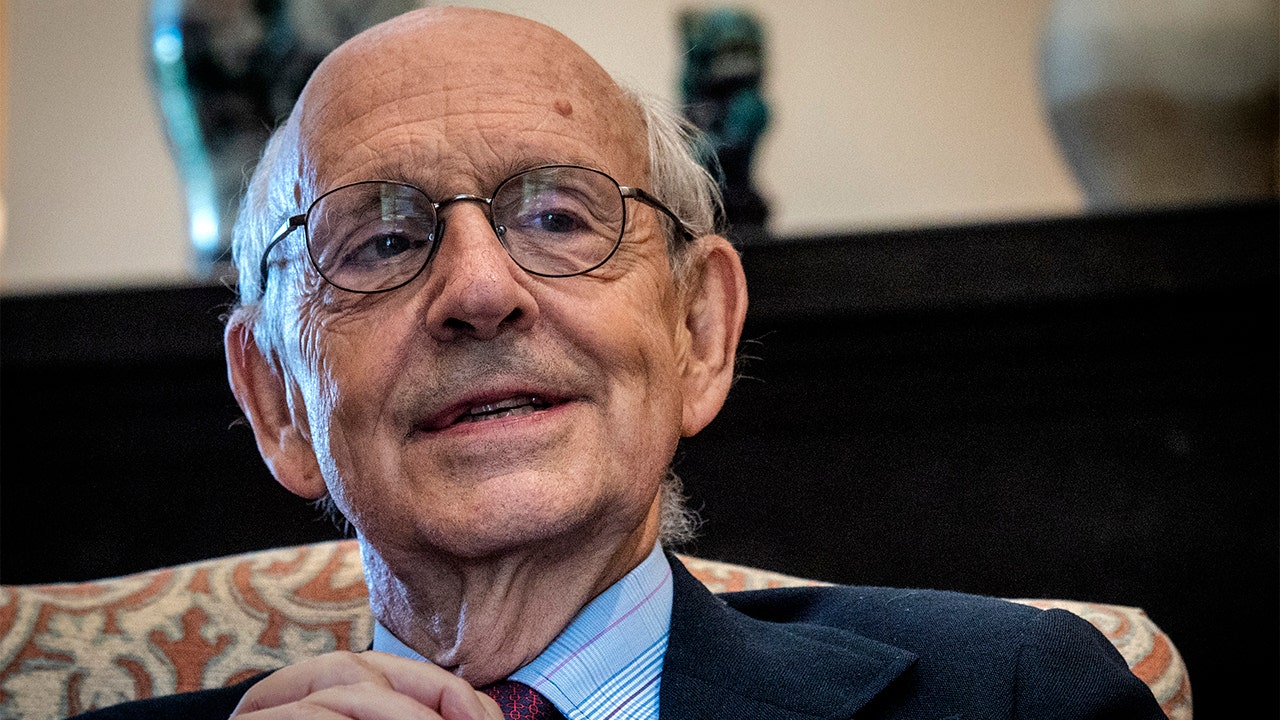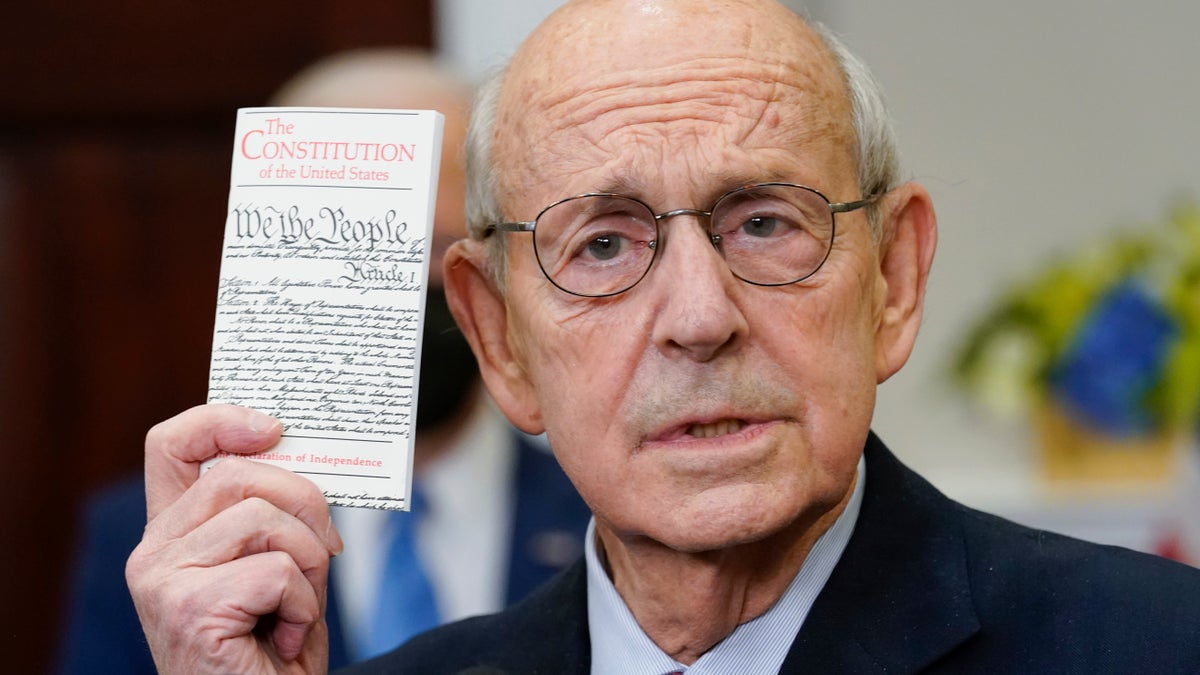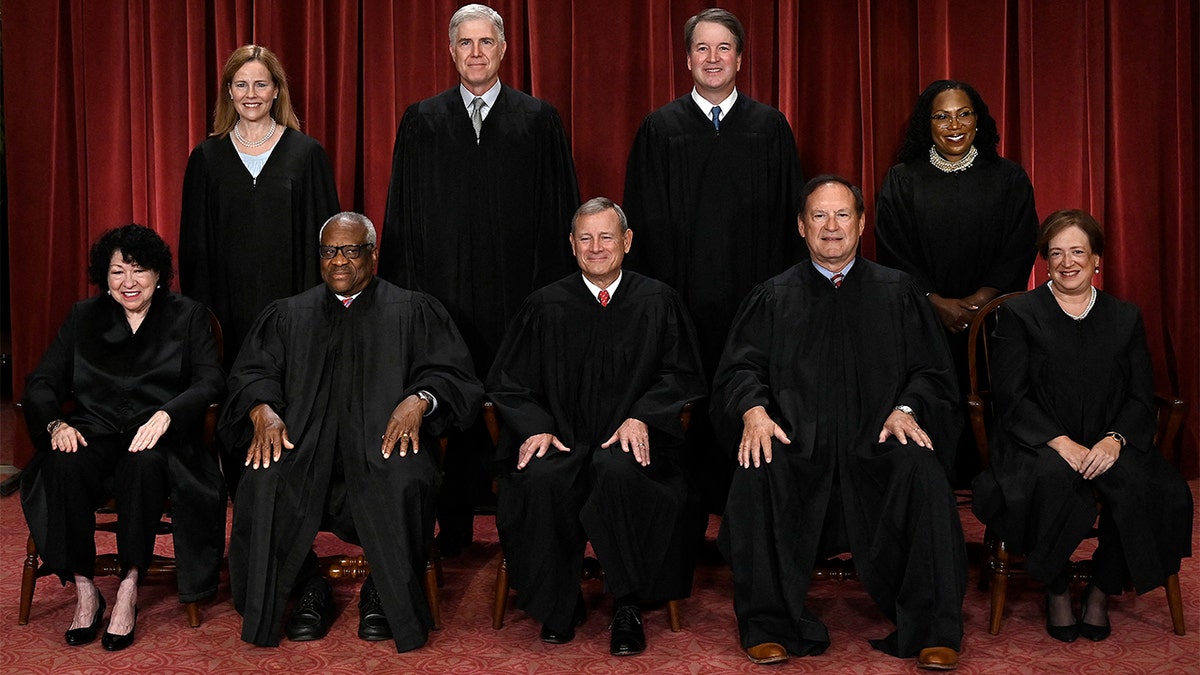
Former Supreme Court Justice Stephen Breyer called out some of his prior colleagues on the high court over their approach to the law on Monday and specifically criticized the Dobbs decision.
The former justice sat for an interview with The New York Times about his new book, “Reading the Constitution: Why I Chose Pragmatism, Not Textualism,” and said, “The Dobbs majority’s hope that legislatures and not courts will decide the abortion question will not be realized.”
He told the media outlet that many questions still remain on the abortion issue in states across the country.
“There are too many questions,” Breyer said during the interview. “Are they really going to allow women to die on the table because they won’t allow an abortion which would save her life? I mean, really, no one would do that. And they wouldn’t do that. And there’ll be dozens of questions like that.”

Former Supreme Court Associate Justice Stephen Breyer holds up a copy of the United States Constitution as he announces his retirement in the Roosevelt Room of the White House in Washington, Thursday, Jan. 27, 2022. (AP Photo/Andrew Harnik, File) (AP Newsroom)
BREYER WAS RELENTLESSLY BULLIED BY THE LEFT TO GET OUT BEFORE REPUBLICANS SEIZE THE SENATE
The Times reported Breyer’s book focused a lot on the Dobbs decision, which overturned Roe v. Wade. He argued that the majority was being naïve in “returning the question of abortion to the political process.”
Breyer appeared to call out Supreme Court Justices Neil Gorsuch, Brett Kavanaugh and Amy Coney Barrett, who were all appointed by former President Trump, over their approach to the law. However, The New York Times reported that Breyer didn’t name the justices directly.
The former justice argued the current court “festishizes” the Constitution and fails to look at the law with common sense.

The Supreme Court building in Washington, D.C. (AP Photo/J. Scott Applewhite)
SUPREME COURT RULES UNANIMOUSLY FOR TRUMP IN COLORADO BALLOT DISQUALIFICATION DISPUTE
“Recently,” Breyer wrote in his book, “major cases have come before the court while several new justices have spent only two or three years at the court. Major changes take time, and there are many years left for the newly appointed justices to decide whether they want to build the law using only textualism and originalism.”
Breyer argued there were significant issues with originalism, the first being that it requires Supreme Court justices to study history.
“First, it requires judges to be historians — a role for which they may not be qualified — constantly searching historical sources for the ‘answer’ where there often isn’t one there,” he wrote. “Second, it leaves no room for judges to consider the practical consequences of the constitutional rules they propound. And third, it does not take into account the ways in which our values as a society evolve over time as we learn from the mistakes of our past.”

Supreme Court Justices posing for an official photo at the Supreme Court. (Photo by OLIVIER DOULIERY/AFP via Getty Images)
CLICK HERE TO GET THE FOX NEWS APP
Breyer, who retired in 2022, did not accuse the justices of being partisan, according to the Times, but argued their approach to the law “represented an abdication of the judicial role.”
